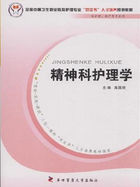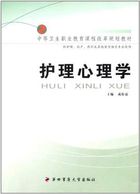As the state of morality then made superfluous many of the precautions which would have been necessary at other times, there was no fear that a dictator would abuse his authority, or try to keep it beyond his term of office.On the contrary, so much power appeared to be burdensome to him who was clothed with it, and he made all speed to lay it down, as if taking the place of the laws had been too troublesome and too perilous a position to retain.
It is therefore the danger not of its abuse, but of its cheapening, that makes me attack the indiscreet use of this supreme magistracy in the earliest times.For as long as it was freely employed at elections, dedications and purely formal functions, there was danger of its becoming less formidable in time of need, and of men growing accustomed to regarding as empty a title that was used only on occasions of empty ceremonial.
Towards the end of the Republic, the Romans, having grown more circumspect, were as unreasonably sparing in the use of the dictatorship as they had formerly been lavish.It is easy to see that their fears were without foundation, that the weakness of the capital secured it against the magistrates who were in its midst; that a dictator might, in certain cases, defend the public liberty, but could never endanger it; and that the chains of Rome would be forged, not in Rome itself, but in her armies.The weak resistance offered by Marius to Sulla, and by Pompey to Cæsar, clearly showed what was to be expected from authority at home against force from abroad.
This misconception led the Romans to make great mistakes; such, for example, as the failure to nominate a dictator in the Catilinarian conspiracy.
For, as only the city itself, with at most some province in Italy, was concerned, the unlimited authority the laws gave to the dictator would have enabled him to make short work of the conspiracy, which was, in fact, stifled only by a combination of lucky chances human prudence had no right to expect.
Instead, the senate contented itself with entrusting its whole power to the consuls, so that Cicero, in order to take effective action, was compelled on a capital point to exceed his powers; and if, in the first transports of joy, his conduct was approved, he was justly called, later on, to account for the blood of citizens spilt in violation of the laws.
Such a reproach could never have been levelled at a dictator.But the consul's eloquence carried the day; and he himself, Roman though he was, loved his own glory better than his country, and sought, not so much the most lawful and secure means of saving the State, as to get for himself the whole honour of having done so.39 He was therefore justly honoured as the liberator of Rome, and also justly punished as a law-breaker.However brilliant his recall may have been, it was undoubtedly an act of pardon.
However this important trust be conferred, it is important that its duration should be fixed at a very brief period, incapable of being ever prolonged.In the crises which lead to its adoption, the State is either soon lost, or soon saved; and, the present need passed, the dictatorship becomes either tyrannical or idle.At Rome, where dictators held office for six months only, most of them abdicated before their time was up.If their term had been longer, they might well have tried to prolong it still further, as the decemvirs did when chosen for a year.The dictator had only time to provide against the need that had caused him to be chosen;he had none to think of further projects.7.THE CENSORSHIP A S the law is the declaration of the general will, the censorship is the declaration of the public judgment:
public opinion is the form of law which the censor administers, and, like the prince, only applies to particular cases.
The censorial tribunal, so far from being the arbiter of the people's opinion, only declares it, and, as soon as the two part company, its decisions are null and void.
It is useless to distinguish the morality of a nation from the objects of its esteem; both depend on the same principle and are necessarily indistinguishable.
There is no people on earth the choice of whose pleasures is not decided by opinion rather than nature.Right men's opinions, and their morality will purge itself.Men always love what is good or what they find good;it is in judging what is good that they go wrong.This judgment, therefore, is what must be regulated.He who judges of morality judges of honour;and he who judges of honour finds his law in opinion.
The opinions of a people are derived from its constitution; although the law does not regulate morality, it is legislation that gives it birth.
When legislation grows weak, morality degenerates; but in such cases the judgment of the censors will not do what the force of the laws has failed to effect.
From this it follows that the censorship may be useful for the preservation of morality, but can never be so for its restoration.Set up censors while the laws are vigorous; as soon as they have lost their vigour, all hope is gone; no legitimate power can retain force when the laws have lost it.
The censorship upholds morality by preventing opinion from growing corrupt, by preserving its rectitude by means of wise applications, and sometimes even by fixing it when it is still uncertain.The employment of seconds in duels, which had been carried to wild extremes in the kingdom of France, was done away with merely by these words in a royal edict: "As for those who are cowards enough to call upon seconds." This judgment, in anticipating that of the public, suddenly decided it.But when edicts from the same source tried to pronounce duelling itself an act of cowardice, as indeed it is, then, since common opinion does not regard it as such, the public took no notice of a decision on a point on which its mind was already made up.















